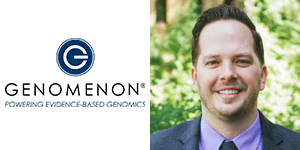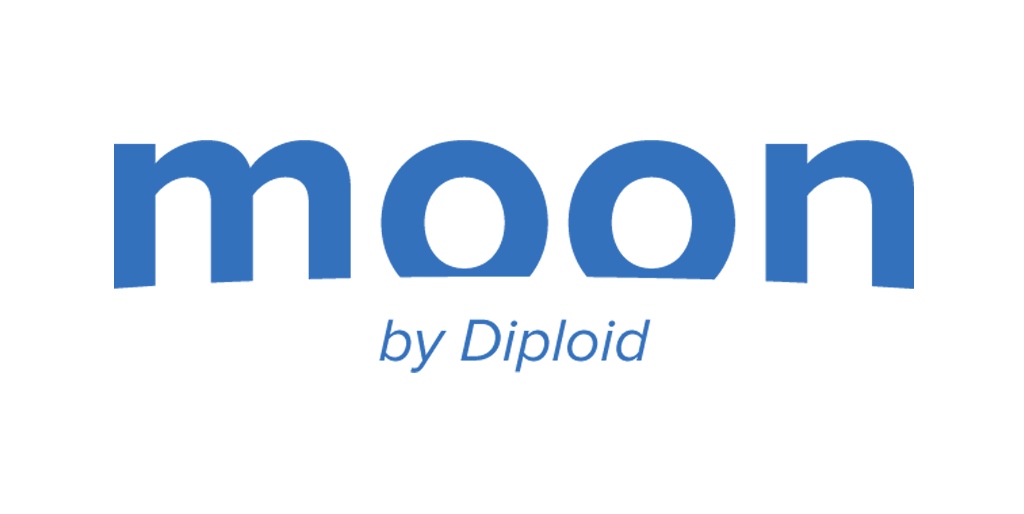Webinar: 3 Simple Steps to Diagnose Rare Diseases in Minutes

Dr. Cyrielle Kint
Chief Scientific Officer,
Diploid

Dr. Mark Kiel
Co-Founder & Chief Scientific Officer, Genomenon
Drs. Cyrielle Kint from Diploid and Mark Kiel from Genomenon introduced Moon diagnostic software and demonstrated how integration with Mastermind allows you to easily assess related variants that have been reported in literature.
We learned how to:
Use Moon for automated analysis of WES/WGS data
Manually filter variants in Moon based on custom criteria, including literature citations
Use Mastermind to easily find and analyze relevant variant data in the literature
About the Webinar
With increasing use of genome and exome sequencing (WGS/WES) data in routine clinical practice, variant interpretation is now the bottleneck in rare disease diagnostics. This challenge is compounded by the accelerated pace of discovery of new variant-disease associations in research labs. Additionally, the need for reinterpretation of undiagnosed samples and the scarcity of skilled geneticists means new tools are needed in order to meet the demands of clinical genome interpretation.
Moon is the first clinical-grade software to use artificial intelligence to autonomously diagnose rare Mendelian diseases. Starting from an input VCF file containing variants from whole exome or whole genome data along with patient information (e.g. gender, age of onset and symptoms), Moon software prioritizes the causal variants within minutes.
Due to an extensive knowledge of rare disease genetics, Moon typically presents a short list of variants (between 4 and 8 variants on average) for manual review, along with the evidence necessary to confirm these calls. Diploid and Genomenon have partnered together to unite the benefits of Moon’s data aggregation and annotation capabilities with the power of the Mastermind Genomic Search Engine (exhaustive literature citations for genomic variants). As a result, if a variant has ever been mentioned in literature, you will see it right away in Moon, and be able to link directly to that evidence in Mastermind.
Webinar Q&A
Can Moon analyze gene panels?
– Yes it can! It will analyze any set of genes defined by a user.
Is there a paper published on the Moon algorithm? Can you provide the paper?
– The Science Translational Medicine paper has some info on the algorithm.
Moon is one type of software that only can use VCF file for analysis?
– It depends on the VCF.
Does Moon use hg19 or hg38?
– Starting October 2019, it will support both genome builds.
Is your system within the scope of GDPR and if so, can I retract my information from the database?
– Yes, you have full control over the information in our system. Removing a sample will remove all related info.
Can Moon say that sequence data is insufficient (e.g. coverage, dept etc) of the reanalysis (old) samples?
– Not really, as it’s using VCF. For QC, a BAM file would be better.
After reanalyzing (autopilot), do the manually filtered variants disappear ?
– Moon keeps track of all previous analyses and their shortlists. If you manually shortlist a variant manually, you can still find it after reanalysis
I know the webinar is about rare constitutional diseases, but is it also able to be used for oncology data for neoplastic diseases?
– Moon can still be used for familial cancers (germline), not for somatic samples (tumor/normal).
Could you provide the Rady paper Pubmed ID?
https://www.ncbi.nlm.nih.gov/pubmed/31019026
How sensitive is the analysis to the “input” patient’s age of onset?
– Age of onset is not used for filtering, only for annotation.
Would you suggest to provide more specific HPO, or broad HPO terms? or both?
– Both. The more HPO terms the better, it’s my experiences / a super satisfied Moon user.
Are you going to incorporate the Illumina splicing prediction?
– Yes, it’s coming soon!
(Participant to participant) Have you ever encountered a scenario where MOON missed a diagnosis but it was identified by another type of analysis (manual etc)?
– No!
Genome browser? Excellent! Will save a lot of time.
– Thanks! It’s just a first version, more features are coming 🙂
What is the overall diagnose rate till now?
– Hard to answer, as it depend on the group of patients / pathology / testing strategy.
Where can we find the ACMG tiers classification in Moon?
– It’s coming soon!
Does Moon show you a pathway if some of the variants in the filtered variant list are linked somehow?
– If you are referring to protein-level relationship, I am afraid the answer is no.
What is the Moon implementation like? I mean how many patients/trios has Moon been used for? So you can tell the diagnosis rate by estimation?
– It’s information we’re not allowed to share, as this is confidential health data.
Is there any way to export the variants under menu-filter model?
– You can export variants with annotations to CSV.
Will Moon raise a flag of saying “undiagnosed” so that you may put efforts on in the future?
– You can close a sample as negative. That way, you can set specific reanalysis strategies based on that.
Does the report assume letter paper size, or does European A4 work as well?
– It’s made for A4.
The access to Mastermind is limited? Mine expired after a month.
– Mastermind Basic Edition is a free and ongoing account for anyone to use. Mastermind Professional Edition is free for a trial period.
How would Moon handle variants that are in publications but are either refuted or have uncertain significance?
– They would still be shown.
Since this is a broadcast about rare disease … there are many VUS … is Diploid (with permission) retaining genotype/phenotype data to share with those that might want to do further analysis or research?
– Data is never shared outside of the lab that has uploaded it.
What’s your plan to annotate CNV calls regarding the literature search? As I understand, Mastermind doesn’t annotate CNVs, right?
– As of September 2019, we have the ability to capture CNVs in our indexing process and will soon be releasing this information in our Mastermind APIs and the Genomic Search Engine user interface. If you are interested, contact us at hello@genomenon.com to discuss in more detail.
Apart from analyzing individual patient data, what other in silico analysis can be performed using MOON?
– Moon can analyse single samples in addition to performing family analyses of any configuration of interest (eg. duo, trio, quatro… with any number of affected and/or healthy family members).
Does moon support detection of indels?
– Moon can analyse single samples in addition to performing family analyses of any configuration of interest (eg. duo, trio, quatro… with any number of affected and/or healthy family members).
Can you tell us more about Moon’s internal dataset? What kind of data has been included in that dataset?
– The disorder model underlying Moon links genes to disorders, to phenotypes and to a lot of other metadata, allowing Moon to strongly take into account the phenotype of the patient for filtering and ranking variants.
– The ‘Diploid frequency’ that is annotated for each variant is the allele frequency that is calculated based on all samples on the specific server you are using. This could thus reflect the allele frequency of all samples of a single lab (for users with a dedicated Moon server), or of the combination of all samples uploaded on a shared server.
How do you evaluate variant that appear in gene which has high homologic sequences such as PRSS1 PKD1? Shortly how do you distinguish variant in terms of quality?
– Since Moon always starts from VCF, it has no info on mapping quality, which would be important with respect to these homologous regions.
In terms of variant quality, Moon only considers variants with a PASS in the VCF filter field. Overall depth of coverage, allele depth, allelic imbalance and genotype quality are the VCF-based quality parameters that are taken into account in the automated Moon pipeline. In the Filter view, the ‘Quality’ filter allows you to define your own quality criteria for filtering.

